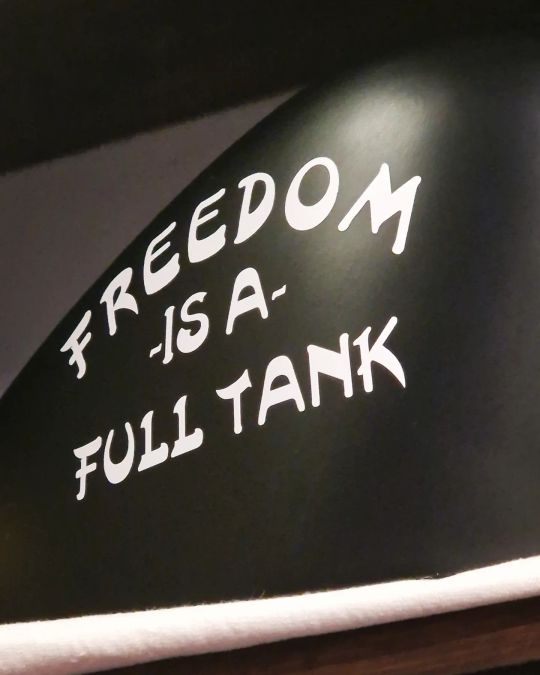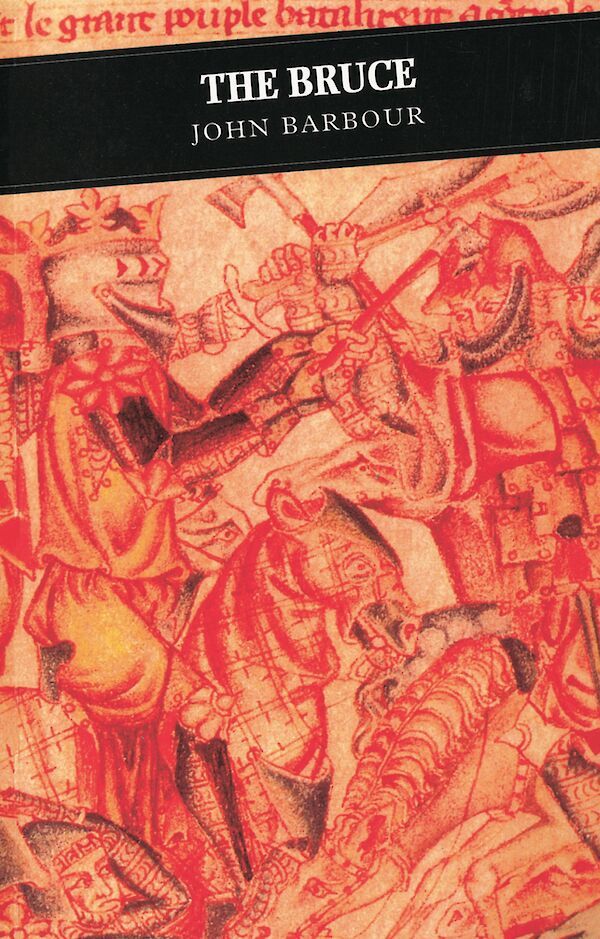#freedeom
Text

#harleydavidson#caferacer#motorcycle#chopper#bikelife#harley#harleygirl#harleylife#harleys#bobber#freedeom#tank
222 notes
·
View notes
Text

Romans 6:14 (NLT) -
Sin is no longer your master, for you no longer live under the requirements of the law. Instead, you live under the freedom of God’s grace.
16 notes
·
View notes
Photo




Freedom bridge, Tartu, Estonia
#freedeom#bridge#tartu#Estonia#wineter#architecture#city#urban#photography#snowfall#geralt of rivia#street art#graffiti#travel#$wanderlust#hiking adventures#light#reflection#original photography#original photographers#photographers on tumblr#lensblr#pws#nikon z#darktable
17 notes
·
View notes
Text
What Happened to Your Rights?
If I were to say that I think our most basic rights are granted by God, would you think of me as an “extremist”? Probably not. You may be surprised to learn that some people in places of influence today would.
A few days ago an article appeared in Politico warning the world of the dangers of Christian extremists wanting to take over and rule America as an oppressive theocracy — or something like…

View On WordPress
0 notes
Text



John Barbour, the early Scottish poet, died on March 13th 1395.
Barbour was born, perhaps in Aberdeenshire, early in the 14th century, approximately 1316. In a letter of safe-conduct dated 1357, allowing him to go to Oxford for study, he is described as archdeacon of Aberdeen. He is named in a similar letter in 1364 and in another in 1368 granting him permission to pass to France, probably for further study, at the university of Paris.
In 1372 he was one of the auditors of exchequer, and in 1373 a clerk of audit in the king's household. In 1375 (he gives the date, and his age as 60) he composed his best known poem The Brus, for which he received, in 1377, the payment of ten pounds, and, in 1378, a life-pension of twenty shillings.
The only biographical evidence of his closing years is his signature as a witness to sundry deeds in the "Register of Aberdeen" as late as 1392. According to the obit-book of the cathedral of Aberdeen, he died on the 13th of March 1395. The state records show that his life-pension was not paid after that date.
Because much of his other work has been lost there is considerable controversy has arisen regarding Barbour's literary work. If he be the author of the five or six long poems which have been ascribed to him by different writers, he adds to his importance as the father of Scots poetry the reputation of being one of the most voluminous writers in Middle English, certainly the most voluminous of all Scots poets.
The Brus, in twenty books, and running to over 13,500 four-accent lines, in couplets, is a narrative poem with a purpose partly historical, partly patriotic. It opens with a description of the state of Scotland at the death of Alexander III, and concludes with the death of Douglas and the burial of the Bruce's heart, a period from the years 1286, unit 1332.
While the poem covers many thing, as in any good story there is a main topic, of course in The Brus it is The Battle of Bannockburn, and as you would expect, the King is the hero of the chivalric type common in contemporary romance., in this case fighting for the freedom of his country. While very few of us have read the poem, I guarantee that the majority can quote at least one line from it “ fredome is a noble thing “ or to quote this section of the verse;
A! fredome is a noble thing!
Fredome mayss man to haiff liking;
Fredome all solace to man giffis:
He lyves at ess that frele lyvs!
Translating to;
Ah, freedeom is a noble thing!
Freedom makes man to have liking!
Freedom all solace to man gives:
He lives at ease that freely lives!
As I said earlier, much of Barbour's other work is lost, one such piece is Stewartis Oryginale, a history of the lineage of the Stewarts. The Stewart name replaced that of Bruce in the Scottish royal line when Robert II acceded to the throne after the death of David II, his uncle. Robert II was Barbour’s royal patron. It is not known how the work came to be lost.
Much of the history of Robert the Bruce is taken from the poem The Brus, I do think a lot of it was exaggerated and written to please Robert II, who must have been proud to bare his Grandfather’s name, Barbour would have written the poem to please the King.
One of the most dramatic and lines in the poem refer to the first day of The Battle of Bannockburn when the young English Knight Henry de Bohun sees The Bruce and makes a foolish, but brave attempt to kill our Scottish hero.
The hevy dusche that he him gave
That ner the heid till the harnys clave.
The hand-ax schaft fruschit in twa,
And he doune to the erd gan ga
All flatlynys for him faillyt mycht.
That wes perfornyst douchtely,
Translated roughly to;
The heavy clout he gave
So he cleaved the head to the brains
The hand-axe shaft broke in two
And he ell to the ground
Dead and devoid of all strength now
This was the first blow of the battle.
No edition of the poem written in Barbour’s own hand survives, but two early versions, transcribed in the 15th century, still exist. These are kept at the Library of St John’s College, in Cambridge, and at the National Library of Scotland, Edinburgh.
Pics are a Memorial to John Barbour, St Machar's Cathedral, one of the 15th century translations, an 18th century translation at The National Museum of Scotland, Edinburgh, and the sentiment underlying the poem, which many of you may have seen sitting at the top of the Mound, as you take the steps up to Makar’s Court.
For a translation of the greater part of The Brus check the link here https://archive.org/.../bruceofbannockbu.../page/36/mode/2up
If you’re just after snippets, like I provide, the Scots Language Centre does a grand job.
13 notes
·
View notes
Text
and when nobody wakes you up in the morning, and when nobody waits for you at night, and when you can do whatever you want, what do you call it, freedeom or loneliness?
0 notes
Text
№ 834 | Sofia
Work ends on Friday and the buoyant lightness of freedeom expands throughout Sofia's body, starting in her heart and radiating outward. She barely clears the front doors before the feeling lifts her and she soars away, floating straight up in a warm(ish) beam of whatever counts for sunshine at four o'clock in December.
When she finally makes landfall, it is in a foreign country; the far shore, where the air is sweet, the clocks don't run and the quiet mornings stretch and stretch but never break.
Vacation, Sofia sighs. The promise kept. Hallelujah and amen, may the season never end.
a story concerning Christmas.
1 note
·
View note
Text
Biblical Truths About Freedom
Here are the basic attributes of freedom in the Old and New Testaments:
Freedom is not autonomy or doing what you feel like doing without any constraints.
Freedom involves structure. Bondage to Christ allows us to be free to be what we are created to be.
Freedom is within the context of law. We are not under obedience to the law as a condition of salvation, but the moral law and Christ’s commands give us a guide to know how to live and love.
We are truly free when we know the truth about ourselves and the world. This means throwing off the lies and deceptions to which we are so often captive.
Salvation is not primarily political liberation (as in some theologies). But God often intervened when his people were oppressed by unjust totalitarian leaders (Exodus, Judges).
Inner renewal often leads to outer consequences and renewal of the land.
The Bible doesn’t prescribe one type of government — but freedom (political, economic and religious) is consistent with, not contradictory to, the Bible.
Inner freedom inevitably drives toward outer freedom. You can have political (economic and religious) freedom and still be in bondage to sin. You can have inner freedom in an oppressed situation. But having both inner and outer freedoms is the most ideal state for humans (Mic. 4:4).
~ Art Lindsley
2 notes
·
View notes
Photo

Fly birds fly #artwork .. . . #lisboa #lxfactory #art #lissabon #freedeom #birds (hier: LXFactory) https://www.instagram.com/p/BnB2SHPgcD5/?utm_source=ig_tumblr_share&igshid=1socxp4bf0bdk
1 note
·
View note
Photo

#StickIt
33K notes
·
View notes
Text
managers hate it when you suicide bait the customers but legally they can't stop you. because of freedeom of speech
20 notes
·
View notes
Photo

Jasmine Hussain for TOPSHOP
97 notes
·
View notes
Photo




John Barbour, the early Scottish poet, died on March 13th 1395.
Barbour was born, perhaps in Aberdeenshire, early in the 14th century, approximately 1316. In a letter of safe-conduct dated 1357, allowing him to go to Oxford for study, he is described as archdeacon of Aberdeen. He is named in a similar letter in 1364 and in another in 1368 granting him permission to pass to France, probably for further study, at the university of Paris.
In 1372 he was one of the auditors of exchequer, and in 1373 a clerk of audit in the king's household. In 1375 (he gives the date, and his age as 60) he composed his best known poem The Brus, for which he received, in 1377, the payment of ten pounds, and, in 1378, a life-pension of twenty shillings.
The only biographical evidence of his closing years is his signature as a witness to sundry deeds in the "Register of Aberdeen" as late as 1392. According to the obit-book of the cathedral of Aberdeen, he died on the 13th of March 1395. The state records show that his life-pension was not paid after that date.
Because much of his other work has been lost there is considerable controversy has arisen regarding Barbour's literary work. If he be the author of the five or six long poems which have been ascribed to him by different writers, he adds to his importance as the father of Scots poetry the reputation of being one of the most voluminous writers in Middle English, certainly the most voluminous of all Scots poets.
The Brus, in twenty books, and running to over 13,500 four-accent lines, in couplets, is a narrative poem with a purpose partly historical, partly patriotic. It opens with a description of the state of Scotland at the death of Alexander III, and concludes with the death of Douglas and the burial of the Bruce's heart, a period from the years 1286, unit 1332.
While the poem covers many thing, as in any good story there is a main topic, of course in The Brus it is The Battle of Bannockburn, and as you would expect, the King is the hero of the chivalric type common in contemporary romance., in this case fighting for the freedom of his country. While very few of us have read the poem, I guarantee that the majority can quote at least one line from it “ fredome is a noble thing “ or to quote this section of the verse;
A! fredome is a noble thing!
Fredome mayss man to haiff liking;
Fredome all solace to man giffis:
He lyves at ess that frele lyvs!
Translating to;
Ah, freedeom is a noble thing!
Freedom makes man to have liking!
Freedom all solace to man gives:
He lives at ease that freely lives!
As I said earlier, much of Barbour's other work is lost, one such piece is Stewartis Oryginale, a history of the lineage of the Stewarts. The Stewart name replaced that of Bruce in the Scottish royal line when Robert II acceded to the throne after the death of David II, his uncle. Robert II was Barbour’s royal patron. It is not known how the work came to be lost.
Much of the history of Robert the Bruce is taken from the poem The Brus, I do think a lot of it was exaggerated and written to please Robert II, who must have been proud to bare his Grandfather’s name, Barbour would have written the poem to please the King.
One of the most dramatic and lines in the poem refer to the first day of The Battle of Bannockburn when the young English Knight Henry de Bohun sees The Bruce and makes a foolish, but brave attempt to kill our Scottish hero.
The hevy dusche that he him gave
That ner the heid till the harnys clave.
The hand-ax schaft fruschit in twa,
And he doune to the erd gan ga
All flatlynys for him faillyt mycht.
That wes perfornyst douchtely,
Translated roughly to;
The heavy clout he gave
So he cleaved the head to the brains
The hand-axe shaft broke in two
And he ell to the ground
Dead and devoid of all strength now
This was the first blow of the battle.
No edition of the poem written in Barbour’s own hand survives, but two early versions, transcribed in the 15th century, still exist. These are kept at the Library of St John’s College, in Cambridge, and at the National Library of Scotland, Edinburgh.
Pics are a Memorial to John Barbour, St Machar's Cathedral, one of the 15th century translations, an 18th century translation at The National Museum of Scotland, Edinburgh, and the sentiment underlying the poem, which many of you may have seen sitting at the top of the Mound, as you take the steps up to Makar’s Court.
For a translation of the greater part of The Brus check the link here https://archive.org/details/bruceofbannockbu00barbrich/page/36/mode/2up
If you’re just after snippets, like I provide, the Scots Language Centre does a grand job.
https://www.scotslanguage.com/Bannockburn_1314/Barbour_and_Freedom
32 notes
·
View notes
Note
thats good to hear! i was a bit worried about your lip,hope it hurt less now. im okay, but heard upsetting news regarding internet freedom in my country so im a bit anxious regarding said freedom in the near future :x and i hope it doesnt go through ya know?
My lip is doing suprisingly well. It hurts worse than in looks haha. I’m sorry to hear about the internet freedeom in your country. Whatever happens, you can get through it! I wish you the best of luck c:
9 notes
·
View notes
Note
Damnit I thought of a better one! What if we gave EE Nate and then he, the new Ben and WTF the other ones name is could have a threesome of bad kissers?!?! We would be free of Nate and the people who ship them would die of bad wet dreams and it would be all around FREEDEOM. That's the one I should have sent. 😳😉
Omg anon you just made me snort hot chocolate out of my nose but you make a very good point and I’d be okay with that ✌🏻
#but also that image was emotionally scarring and I dont know if I will be able to sleep for weeks lol#this made me laugh thanks anon 😉#anti ee#asks
4 notes
·
View notes
